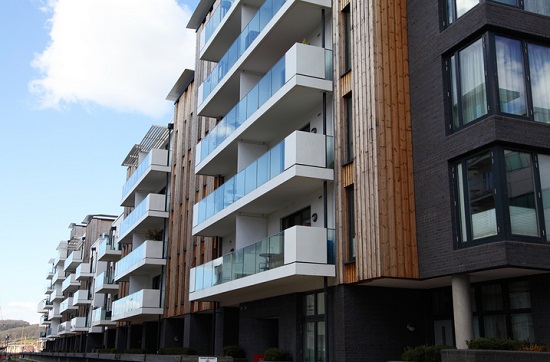Best Flooring for Flats
Reading time: 6 minutes
Why should choosing flooring that’s right for a flat be any different to other properties? It depends on whether you’re a flat owner or a landlord, and the different priorities involved. We’re going to cover the different flooring options available for flats, then talk about which types of flooring are best for either owning or renting.
Which types of flooring are best for flats and apartments?
Whether owning or renting a flat, there’s a clear difference to living in a house. You’re likely to have neighbours on floors above and below you, as well as on either side. With this in mind, there are types of flooring that are generally better suited to flats.
- Luxury Vinyl Flooring
- Engineered Wood Flooring
- Carpeting
What’s the best flooring for rental apartments?
Finding the right flooring for rented accommodation tends to fall to budget, especially when managing more than one apartment in a block, or blocks. As with anything however, weighing cost against durability can end up being more expensive in the long run. It’s also important to keep up the attractiveness of a property to secure interested renters.
Luxury vinyl tile can be a good idea as it’s easy-clean, fairly simple to fix with replacement parts and is more affordable than other luxury flooring types. Laminate flooring for bathrooms and kitchens are also a good idea, being cost-effective and wipeable. As previously mentioned, carpeting can also be a good idea as an easy to manage way of protecting existing floorboards.
What’s the best flooring for flat owners?
For anyone who owns a flat, making it a home is more of a priority than simply renting. With this in mind, looking for durable flooring that looks good and stands the test of time may be just as important as cost. Engineered wood offers a good representation of wood, but if you were looking to invest more, solid wood flooring is another option that’s open to you.
Choosing the right kind of flooring for a flat or apartment can be a big decision, whether it be porcelain or ceramic tiles in the bathroom or looking for the best flooring for a kitchen, your choice can be as broad as you like. With any investment in the home, the right choices in renovations and redecorating to suit the space can have a positive effect on the property’s resale value.

Can I add soundproofing to flooring?
As we’ve mentioned, having neighbours above and below does mean that sound can carry through floors and ceilings. This is why soundproofing should be considered for flooring in flats and apartments. For this reason, installing acoustic underlay serves the purpose of regular underlay, that is to help fix flooring without slipping, while reducing sound levels to the floor below.
There are also flooring panels, such as luxury vinyl flooring, which have their own in-built acoustic insulation. This means they can add soundproofing as they’re installed without acoustic underlay.
While this advice can give you general tips on choosing the right flooring for flats, we have more help and flooring advice available on Trade Corner. You can find guidance on the best flooring for each room of the house, as well as different households.
Disclaimer: The information contained on this page is intended as an overall introduction and is not intended as specific advice from a qualified professional. Travis Perkins aims to avoid, but accepts no liability, in the case that any information stated is out of date.





